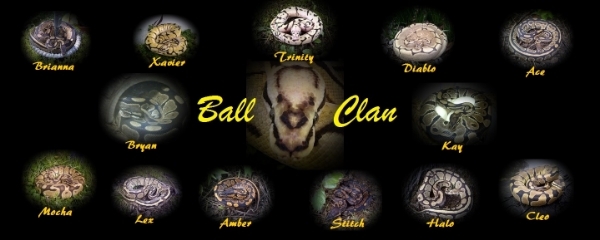» Site Navigation

2 members and 1,504 guests
Most users ever online was 6,337, 01-24-2020 at 04:30 AM.
» Today's Birthdays

» Stats

Members: 75,175
Threads: 248,606
Posts: 2,569,169
Top Poster: JLC (31,651)
|
-
Educating others about wild-caught food?
I just had a friend ask me if it was OK to feed his BP twice in the same day, because he had caught a mouse in a live trap earlier, and has caught another one. His concern was the amount of food being given, not the source of the food.
[facepalm]
Had to explain where the actual risk was being taken.
But given the regularity of this question, have any of you ever been asked about feeding wild-caught prey to exotics? I actually get this question a lot, so it seems that the risks are not as obvious as they seem to veteran hobbyists.
-
-
Let me clarify that I am well aware that feeding native animals to an exotic snake is a terrible idea, and why. However I am finding that a lot of novice owners do not see the danger, and I was wondering if any of you experience this.
Last edited by Ball Clan; 11-11-2013 at 08:27 PM.
-
-
Search the forum post here. We have disused this many times. There is always a few that are hard to convince it is a bad idea.
  KMG KMG 
0.1 BP 1.1 Blood Python 1.0 Brazilian Rainbow Boa 1.0 Aru Green Tree Python
0.1 Emerald Tree Boa 0.1 Dumeril Boa 0.1 Carpet Python 0.1 Central American Boa
0.1 Brooks Kingsnake 0.1 Speckled Kingsnake 1.0 Western Hognose
0.1 Blonde Madagascar Hognose 1.0 Columbian Boa
1.1 Olde English Bulldogge 1.0 Pit Bull
    
-
-
Re: Educating others about wild-caught food?
Yup. Its a pretty common newbie question.
I see threads pop up every once in a while.
Sent from my DROID RAZR using Tapatalk 2
-
-
The reason that you should not feed them wild caught prey is many. One major issue is that you have no control over the quality of prey, meaning they can be unhealthy for many reasons. Some of these reasons include natural diseases that are carried by that prey in your area. Also with the prey being wild caught there is no way to know what the prey has been exposed to, chemical wise. A lot of bugs and wild rodents will usually have some kind of pesticide or other chemical in them and none of which is good for your reptile. Sometimes that wild prey will also be hazardous to your reptile, for example lighting bugs (unique around the Northeast) are toxic to many lizards.
-
The Following User Says Thank You to EAC Reptiles For This Useful Post:
-
Re: Educating others about wild-caught food?
 Originally Posted by EAC Reptiles

The reason that you should not feed them wild caught prey is many. One major issue is that you have no control over the quality of prey, meaning they can be unhealthy for many reasons. Some of these reasons include natural diseases that are carried by that prey in your area. Also with the prey being wild caught there is no way to know what the prey has been exposed to, chemical wise. A lot of bugs and wild rodents will usually have some kind of pesticide or other chemical in them and none of which is good for your reptile. Sometimes that wild prey will also be hazardous to your reptile, for example lighting bugs (unique around the Northeast) are toxic to many lizards.
As I said in my follow-up post, I'm aware of this. I'm just surprised at the number of times I get asked this question.
I guess it's at least good that I get asked, and I have the opportunity to correct the problem.
Last edited by Ball Clan; 11-11-2013 at 09:16 PM.
-
 Posting Permissions
Posting Permissions
- You may not post new threads
- You may not post replies
- You may not post attachments
- You may not edit your posts
-
Forum Rules
|









 Reply With Quote
Reply With Quote



